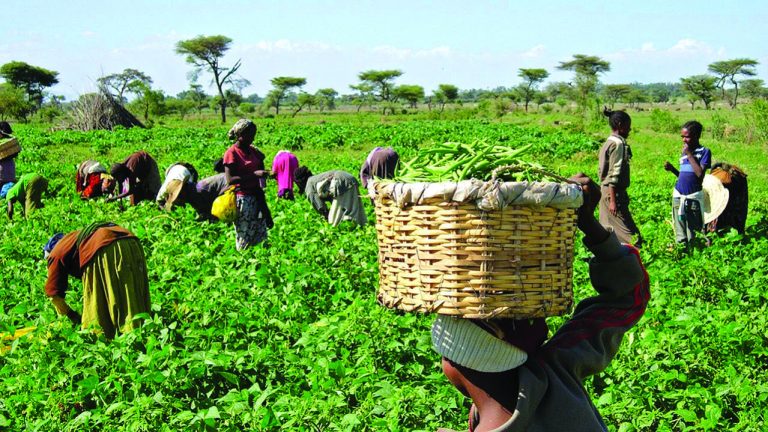The National Agricultural Land Development Authority (NALDA) says its ongoing Renewed Hope Mega Farm Estates in Kwara and Ekiti are set to lift at least 100,000 people out of poverty.
The initiative is also expected to create 12,000 direct jobs and 30,000 indirect jobs.
Executive Secretary of NALDA, Mr. Cornelius Adebayo, made the disclosure on the sidelines of an event organised by the agency during the ongoing CoP30 and MoU signing ceremony in Belem. The statement was made available to reporters in Abuja on Thursday.
Adebayo identified the Mega Farm Estates as one of NALDA’s flagship projects under the Renewed Hope Agenda of President Bola Tinubu. He said the estates are large-scale agricultural settlements covering between 5,000 and 25,000 hectares.
“The pioneer estates have begun in Ekiti and Kwara, with over 1,200 hectares and 1,050 hectares already under cultivation,” he said.
Adebayo explained that NALDA’s carbon-credit initiative is not only a climate solution but also a socio-economic reform that empowers farmers. Under the Mega Farm Estates, each farmer is allocated five hectares of farmland, enabling them to earn sustainable agricultural income while benefiting from a share of carbon credit revenues generated through structured tree-planting and estate-wide reforestation.
“Our goal is to move Nigerians from a low-income bracket to a true middle-class economy. By combining agricultural productivity with carbon-credit earnings, farmers can become independent, prosperous, and globally competitive,” he said.
He added that the estates are fully mechanized and equipped with complete infrastructure, including roads, irrigation systems, processing hubs, housing, and energy systems, to function as self-sustaining agricultural settlements.
“As part of their sustainability framework, each estate will receive comprehensive perimeter fencing, along which NALDA will plant thousands of climate-resilient trees capable of generating significant carbon credits over time. This ensures that beyond food production and job creation, farmers can earn additional income from carbon markets, helping them transition into the middle-income economy,” Adebayo explained.
The NALDA boss said the event provided a platform for Nigeria to share its contributions to global climate solutions, exchange knowledge with partners, and strengthen collaboration on nature-based approaches that support mitigation, adaptation, and sustainable land use.
“We are here to demonstrate the progress Nigeria is making through landscape restoration, agricultural transformation, and plantation rehabilitation under the auspices of NALDA. We are committed to scaling nature-based climate solutions and strengthening the credibility and transparency of our carbon programmes,” he said.
Adebayo noted that over the years, NALDA’s operational mandate has expanded to align directly with Nigeria’s climate commitments by integrating afforestation, reforestation, sustainable land management, and biodiversity enhancement into its plantation programmes.
“NALDA’s plantations across different ecological zones represent some of the most promising nature-based climate assets in Nigeria. They hold the potential to generate high-integrity carbon removals, attract climate finance, and empower thousands of young people and rural farmers. Our presence at CoP30 is to spotlight these transformational efforts and outline the ambitious NALDA Plantation Carbon Roadmap,” he added.


